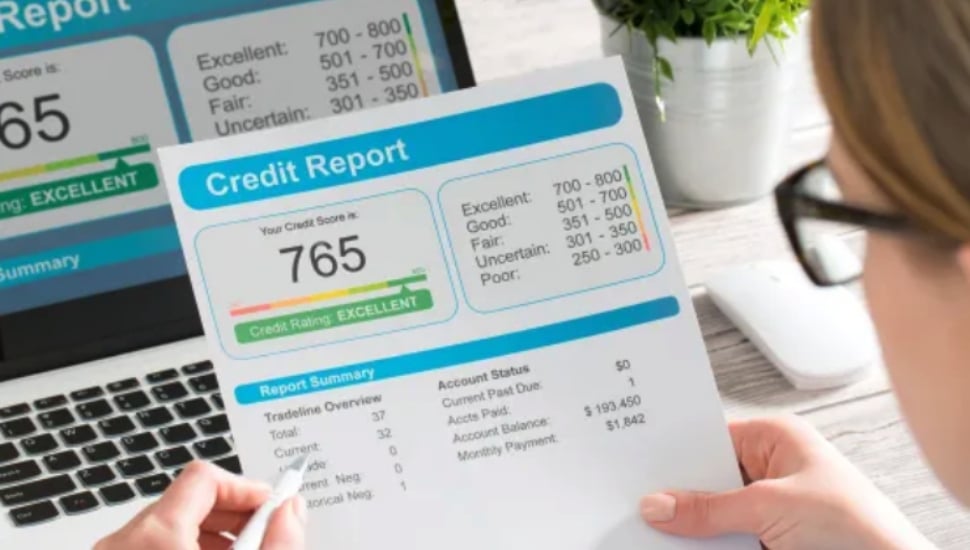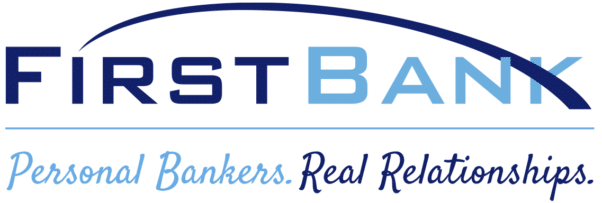First Bank Shares Strategies To Better Understand Credit Scores and Reports

March is recognized as Credit Education Month, and we at First Bank are delving into the essentials of credit scores and credit reports and highlighting why they hold significance. We will also offer tips on how you can improve them.
What’s a Credit Score?
Think of your credit score as a compass guiding you through your financial landscape. It’s a three-digit number that offers a snapshot of your financial behavior. You’ll often hear about two main credit scoring models: FICO® and VantageScore®. While both are important, most lenders primarily use FICO.
Your FICO credit score hinges on five key factors derived from your credit report:
- Payment history (35 percent): This is your track record of paying bills on time.
- Credit utilization (30 percent): This is how much of your available credit you currently utilize.
- Credit history (15 percent): Credit history is the length of time you’ve had credit accounts.
- Credit mix (10 percent): This is the variety of credit accounts you possess.
- New credit (10 percent): This is any of your recent inquiries for credit.
Scores range from 300 to 850, with higher scores indicating stronger creditworthiness. You can significantly impact your score by paying bills on time.
What’s a Credit Report?
Consider your credit report as a comprehensive list of your credit journey. It encompasses personal details alongside information about your credit accounts, including balances and payment history. While it doesn’t include your credit score, it does shed light on credit inquiries and public records like bankruptcies.
In the United States, three major credit reporting agencies — Equifax, Experian, and TransUnion — compile this information. Remember, each agency may have slightly different data, so it’s wise to review all three reports periodically for accuracy.
Why Does Good Credit Matter?
Your credit report and score wield significant influence over your financial opportunities. Lenders scrutinize them to evaluate your eligibility for credit cards, mortgages, and other loans, as well as the terms they’ll offer. Moreover, employers, landlords, and insurers might inspect them for red flags.
A robust credit history unlocks doors to favorable credit prospects. With good credit, you may snag lower interest rates, higher credit limits, and better credit card rewards. Poor credit could impede your access to credit or saddle you with unfavorable terms.
How Can You Improve Your Credit?
If you’re aiming to boost your creditworthiness, consider these steps:
- Punctual Payments: Prioritize paying bills on time, as payment history carries the most weight in your credit score.
- Debt Management: Chip away at debts, starting with those carrying the highest interest rates.
- Credit-Builder Loans: If you’re building or rebuilding credit, these loans — reporting payments to credit bureaus — can bolster your score.
- Secured Credit Cards: With a refundable security deposit, these cards offer a path to responsible credit use and potential upgrades to unsecured cards.
Check Your Credit Report Annually
Under federal law, you’re entitled to one free credit report annually from each major agency. Visit Annual Credit Report to access them. Regular checks empower you to detect errors or fraudulent activities early, mitigating potential damage to your score. Many financial institutions also provide free credit score monitoring.
Knowing the Score
Understanding credit scores and reports is pivotal for navigating your financial journey. By grasping the factors shaping your credit score, routinely reviewing your credit reports, and adopting prudent credit habits, you can fortify your financial standing and unlock better credit opportunities.
Learn more about First Bank and how it continues to remove barriers to help make banking more accessible and inclusive, particularly for vulnerable and underserved populations in the financial system. Additionally, learn about First Bank’s credit card program to begin building your credit score.
Connect With Your Community
Subscribe to stay informed!
"*" indicates required fields



































![95000-1023_ACJ_BannerAd[1]](https://vista.today/wp-content/uploads/2023/03/95000-1023_ACJ_BannerAd1.jpg)














